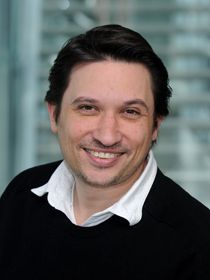Collecting plays a prominent role as a practice of selecting, recording and structuring material and immaterial objects not only in the realm of museums and archives, but also in organizations. In the context of digital transformation and the rising use of generative AI, (“big”) data collection has become one of the most important competitive factors, seemingly paving the way for a further dematerialisation of both the economy and culture. Arguably, such an idea of the futures of collecting does not stand up to closer scrutiny. Furthermore, the excessive use of energy-intensive forms of computing, such as generative AI, is in stark contrast to the goal of sustainability and ecological transition. In this sense, the digital transformation raises numerous questions of how we will deal with our tangible and intangible heritage now and in the future:
- How do societies and organisations relate to their own histories (including identity and change) and to their accumulated repertoires of concepts and actions through collecting processes, in the context of an increasing entanglement of analogue and digital objects and collections?
- How do interactive forms of designing and presenting archives, collections and knowledge, e.g. through generative AI or Extended Reality (XR), reshape our approach to history, identity and the practices of collecting?
- Which objects and data will we (still) store in the future, and with which resources and technologies? And which data and processes is endangered to become ineffective, meaningless or even pointless in a changing environment?
The question of cultural 'big' data and knowledge production becomes particularly pressing in light of recent developments in the field of AI. Human forms of knowledge production are increasingly intertwined with machine learning—a development that risks transforming collecting from a socio-technical practice into a purely technological problem. This needs to be critically examined from a cultural, curatorial and organisational studies perspective.
For the DAC Summer School 2025, we invite contributions from cultural, curatorial, archival and organizational studies that address the diverse practices of ‚sorting out’ and ‘sorting in‘ in the sense of making material and immaterial collections accessible and meaningful. We particularly invite contributions that critically examine the opportunities and challenges of increasing technologization, especially through AI.
We are looking forward to receiving proposals for contributions, particularly from the following areas:
- Archive, museum and exhibition practices: What experiences have been made in the processing of pre- and post-mortem estates, library and museum holdings etc., what are selecting and classification criteria and? How sustainable in terms of the comprehensive approach of the SDGs can these processes be designed? How is AI changing these processes?
- Social history, ethnology and popular culture: What are the relevant items/objects and practices with regard to the museumization or archiving of material and immaterial cultural heritage? How participatory can such collection processes be designed? What shall we collect from our digital age and how?
- Organizations: How do organizations deal with their own history, what spaces of reflection and negotiation of identity arise and how are the relevant material and immaterial collections ordered and organized? How do cultural patterns of action differ from their translation into machine pattern recognition? How does the discourse on rationalisation, administrative effectiveness and efficiency change in the digital age?
- Mediation, communication, storytelling, creative industries: How do we construct an identity based on the sorting and sorting out of inventory goods with the means of language, images, signs, and designs in the age of (cultural) “big data”? To what extent do branding, corporate identity, etc. build on such inventories?
- (Digital) games and gamification practises: (Digital) games and gamification transform collecting into a playful pursuit of exploration and comparison—whether dealing with physical artifacts, digital assets, or intangible knowledge. In this environment, blockchain can secure and authenticate collections, while generative AI opens new avenues of creative engagement and personalization. Yet these technologies also raise pressing questions about sustainability, data sovereignty, and the erosion of human agency in curatorial processes. Balancing this playful impulse with ethical and responsible practices is therefore vital for ensuring that collecting remains both meaningful and inclusive.
In addition to presentations, we encourage interactive sessions where participants can
- work together on issues related to the above topics
- test and discuss existing practical solutions
- develop innovative approaches and strategies for dealing with AI and digitisation in archives and collections.
Examples of interactive sessions
- Workshops to develop tools, educational formats, games, etc. that address the challenges and opportunities of AI and digitisation in archives and collections.
- Design thinking workshops to develop user-centred applications of AI in archives and collections.
- Speed hackathons to develop prototypes for AI-based tools and applications in the cultural heritage sector.
- Business games to simulate decision-making processes in archives and collections related to AI and digitisation.
Call for Contributions
At the Summer School, we would like to shed new light on the topic from different perspectives with a mix of presentations, workshops, play or game prototyping sessions and informal discussions and exchange.
Participants are invited to submit their contributions in one of the following formats:
- Workshop (30 – 90 minutes): Engage participants with interactive activities (for suggestions see above).
- Academic Presentation (~20 minutes): Share and discuss your research findings.
- Project Presentation (~20 minutes): Present a curatorial project or your experience as a curator, archivist or collector or from a visitor's perspective, not necessarily backed by scientific evaluation.
- Poster Presentation (5-minute presentation, open discussion within a poster session): Showcase your ideas or projects through a concise and visually engaging poster.
Publication Options
For each presentation format, you can opt for one of the following publication choices:
- Presentation Only: Your abstract will be featured on the Summer School website, with no additional publication.
- Acacemic Short Paper (3-5 pages): Ideal for concise, yet impactful scientific findings.
- Academic Full Paper (6-12 pages): A more comprehensive exposition of your research.
- Project/Experience/Position Short Paper (3-5 pages): Share insights from projects, experiences, or viewpoints in a brief format.
- Project/Experience/Position Full Paper (6-12 pages): A detailed exploration of your projects, experiences, or perspectives.
The contributions to the Summer School 2025 will be part of the annual journal "DAC - Digital Journal for Arts and Cultural Studies | Digitales Journal für Kunst- und Kulturwissenschaften", https://dac-journal.at/.
Review Process
- Academic Full Papers: will be given the option of being peer-reviewed..
- Project/Experience/Position Papers: Will be reviewed by the editors (chairs).
Important Dates
- Abstract Submission Deadline: April 7, 2025
- Acceptance Notification: April 30, 2025
- Event Dates: July 2-4, 2025
- First Draft of Paper Submission: August 1, 2025
- Iterative Review Process Completion: February 1, 2026
- Publication Date: Fall 2026
Submission Guidelines
Please submit your abstract via the linked form by April 7, 2025 and follow the guidelines below:
- Prepare an abstract summarizing your contribution.
- Choose your preferred presentation format and publication option.
- Ensure that your contribution aligns with one of the three thematic areas, or explicitly state, why another area is of great interest to the audience.
- Follow the specified format and length for your chosen publication option.
We look forward to your valuable contributions!
Participation
Please register using the linked form if you want to participate in our summer school. Registration deadline: 15 June 2025
Participation is free of charge and limited to 40 people.
Participation is also possible without submitting a contribution to the programme. However, we strongly encourage you to actively participate in the programme and look forward to a lively exchange and discussion.
Chairs
Department for Arts and Cultural Studies, University for Continuing Education Krems:
Anja Grebe
Professor of Cultural History and Museum Studies
anja.grebe@donau-uni.ac.at
Helmut Neundlinger
Head of Archives of Contemporary Arts Collection of Literary Estates
helmut.neundlinger@donau-uni.ac.at
Nikolaus Koenig
Head of the Center for Applied Game Studies
nikolaus.koenig@donau-uni.ac.at
in scope GmbH:
Klaus Neundlinger
Head of Research, in scope GmbH
klaus.neundlinger@in-scope.com
Information and Contact


